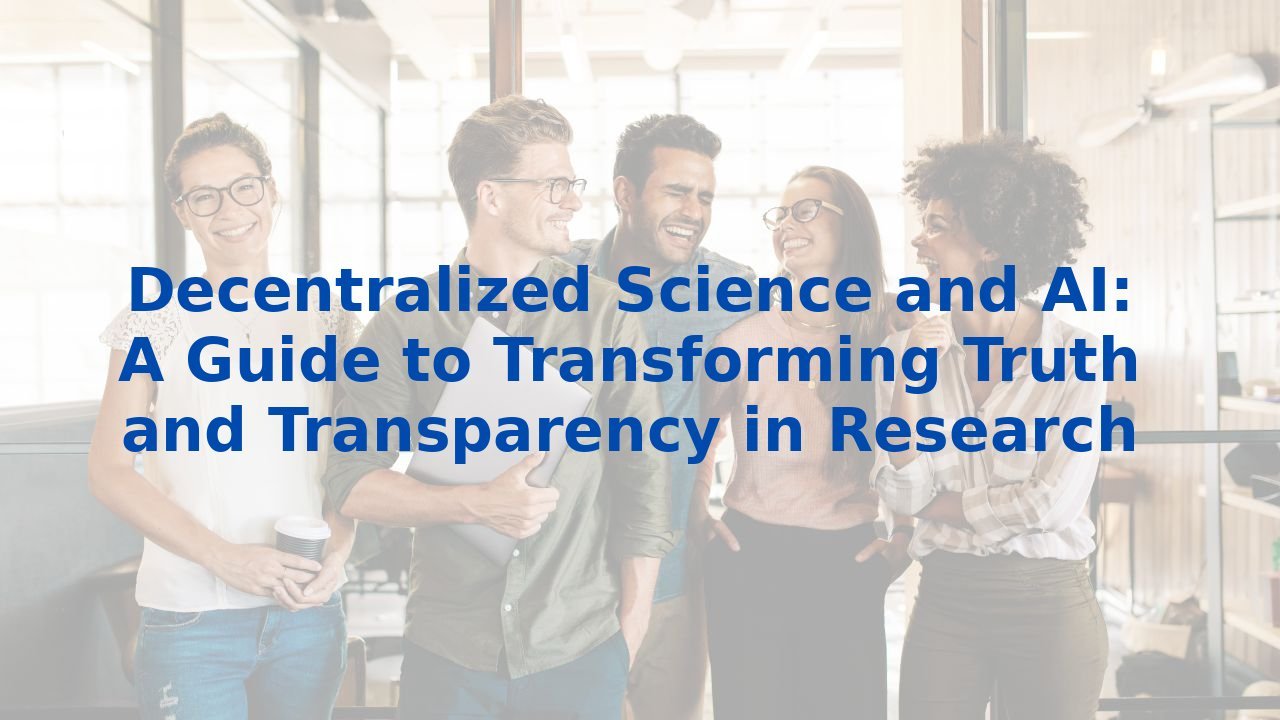Decentralized Science and AI: A Guide to Transforming Truth and Transparency in Research
Decentralized Science and AI: A Guide to Transforming Truth and Transparency in Research
In the expansive universe of research, clarity, truth, and transparency often become elusive, overshadowed by convoluted processes and centralized control. As we find ourselves at the crossroads of innovation, decentralized science, paired with the capabilities of artificial intelligence (AI), marks a paradigm shift in how we engage with data, methodologies, and outcomes. This guide delves into the transformative interplay of decentralized science and AI, highlighting key processes and benefits that could redefine research practices.
The Essence of Decentralized Science
Decentralized science (DeSci) casts aside the traditional hierarchies in research, utilizing blockchain technology to foster collaboration and democratize access to scientific knowledge. By allowing independent researchers and institutions to share their insights and data through a secure network, DeSci enhances the credibility and diversity of scientific inquiry. This shift not only mitigates biases but also facilitates a richer, more holistic understanding of complex problems.
How AI Enhances DeSci Processes
1. Data Integrity and Security
One of the foremost benefits of integrating AI into decentralized science lies in its robust approach to data integrity and security. By employing AI algorithms within blockchain systems, researchers can ensure that data remains unaltered and accessible only to authorized parties. This secure environment instills trust among stakeholders and guarantees that the integrity of research findings is preserved.
2. Efficient Collaboration Across Borders
In an era where geographical boundaries can stifle collaboration, decentralized science and AI facilitate seamless partnerships. AI-powered platforms can analyze vast datasets across different nodes, allowing researchers from varying backgrounds to contribute insights relevant to their expertise. This collaborative energy not only accelerates the pace of research but also results in the generation of diverse perspectives, fostering innovation.
3. Accelerated Peer Review Process
The traditional peer review process often hampers progress in research due to inefficiencies and biases. Decentralized AI can streamline this process by leveraging machine learning algorithms that intelligently filter submissions based on relevance and impact. Such systems can provide transparent grading methods that eliminate personal bias, ensuring that quality research emerges more swiftly.
4. Real-Time Data Analysis
In research, time is of the essence. AI's ability to analyze and interpret data in real-time transforms our capacity to garner insights faster. This rapid analysis allows researchers to make informed decisions without the lag of standard manual data processing. Imagine an environment where hypotheses can be tested and refined in mere moments, rather than taking weeks or months.
The Economic and Social Implications of DeSci and AI
The convergence of decentralized science and AI not only enhances productivity but also cultivates a more equitable research landscape. With easier access to information and collaborative networks, smaller organizations can compete alongside well-established institutions. This democratization of knowledge not only drives innovation but protects individual interests, minimizing the risks of monopolization and misuse inherent in centralized research.
The Importance of Training in AI
While the benefits of decentralized AI in research are profound, the success of these initiatives relies heavily on the knowledge and skills of the workforce behind them. Investing in comprehensive AI training equips employees with the ability to grasp the complexities of decentralized systems and optimize their functionalities. The implications are significant:
- Fostering Creativity: Employees well-versed in AI technologies can contribute innovative solutions, leading to the generation of novel research methodologies.
- Enhancing Operational Efficiency: Trained personnel can navigate decentralized systems seamlessly, ensuring that research workflows are optimized for productivity.
- Building Trust: Knowledgeable employees are more likely to champion transparency, thus fostering greater trust within research communities.
The Road Ahead: Shaping the Future with Decentralized AI
As decentralized science and AI continue on their intertwined journey, it's evident that we are at the precipice of transformative change. With the capacity to enhance research transparency, accelerate innovation, and democratize knowledge sharing, organizations must adapt and embrace these technologies. Investing in training programs that equip employees to harness decentralized AI can become a game-changer, paving the way for a brighter and more just future in research.
As we look to the horizon, let us not forget that the key to unlocking the true potential of decentralized science lies with the individuals—innovators, researchers, and thinkers—who will shape the narrative moving forward. Let’s embrace this opportunity to craft a research landscape founded on truth, transparency, and collaborative brilliance.



